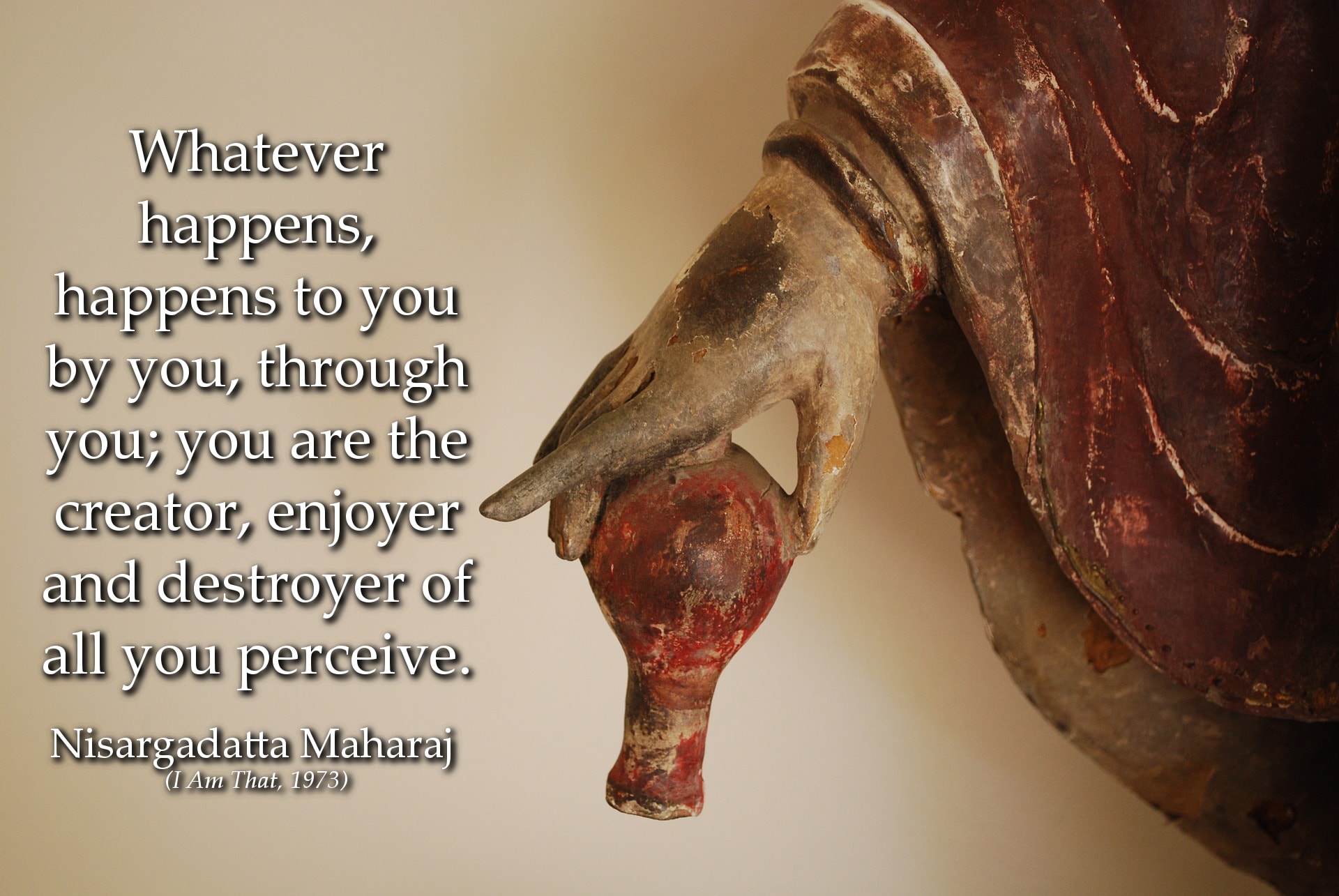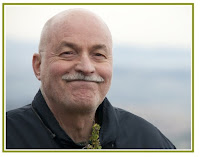
In the game of Becoming the One is projected into the reflection of the mind and perceived as separate - this process is defined as exteriorization - but at the same time the inverse thrust, or the conscious "return" to the primordial Unity, is always taking place. Some aspects of the same One (which we define as entities or persons) manifest themselves as separate and different - as it appears in the mirror of the mind - to carry out the "comedy" of creation.
This duality of thought "allows the One to perceive himself". Which means that for the purposes of cosmic play the antagonistic parts (opposites) are necessary. The self-ignorant can not choose, because he is driven by a mysterious force in him that moves him according to the predispositions and qualities embodied, a sort of to act automatically but which has the appearance of a voluntary maneuver, deriving from the sensation we call "free choice". But although it is apparently resulting from our "arbitrariness", the action taken and its consequences are in fact a simple projection of the energetic force of the One.
The knower of the One, which is the One in Consciousness, and therefore beyond any sense of limitation, and devoid of the notion of "better" or "worse" "right" or "wrong", does not "choose", and in fact what and how could he choose if he is present in everything? The problem of the incongruity of such statements is only in the mind of the "seeker", who is "invited" to exercise discipline and self-control to make the "return to house ", both in the biological and spiritual sense, he therefore believes that the works, the practices, that he carried out are functional to that" return ", in fact they are only" a signal "of the return and absolutely not propaedeutic to it.
And then defining it as "return" is somewhat misleading -it is a term suitable for the dual mind that thinks of concluding a path- in fact, how can one "return" to what one is? But in the present condition we can not do without using language that is a form of sharing and communication in duality, to express ourselves "absurdly" in wanting to recognize what we have always been and always will be. The fact remains that non-dual awareness, being incommunicable in words, it can only be transmitted in an "empathic" form (we would also say "love" or "compassion"), such "empathy" is the constant and real nature of the One so the flow can never be interrupted.
The state of the Knower and the empathy he emanates, towards his own forms, is not dispensation or favor from the One to the many ... it is the simple staying in his own nature, totally and absolutely One and therefore indistinguishable, and which can not be divided into "degrees". In this sense the presence of the "Knower" of reality is compared to the Presence of the One. And whoever consciously enters that Presence in it is absorbed and recognizes himself. This is the great mystery of the Presence.
Paolo D'Arpini

Testo italiano:
"Nella coscienza non dualistica esiste solo l’Uno, senza un due, per cui ogni cosa presente, passata o futura, è considerata la manifestazione di quell’Uno e non può essere altri che Quello." (Saul Arpino)

Nel gioco del Divenire l’Uno si proietta nel riflesso della mente e si percepisce come separato – questo processo è definito esteriorizzazione - ma allo stesso tempo sempre è in atto la spinta inversa, ovvero del consapevole "ritorno" all’Unità primigenia. Alcuni aspetti dello stesso Uno (che definiamo entità o persone) si manifestano come separati e diversi -così appare nello specchio della mente- per espletare la “commedia” della creazione.
Questa dualità di pensiero “consente all’Uno di percepire se stesso”. Il che significa che ai fini del gioco cosmico le parti antagoniste (gli opposti) sono necessarie.L’ignorante di Sé non può scegliere, perché sospinto da una forza misteriosa in lui riposta che lo muove secondo le predisposizioni e qualità incarnate, una sorta di agire automatico che ha però la parvenza della manovra volontaria, derivante dalla sensazione che noi definiamo “libera scelta”. Ma pur essendo apparentemente risultante dal nostro “arbitrio” l’azione compiuta e le sue conseguenze sono in verità una semplice proiezione della forza energetica dell’Uno.
Il conoscitore dell’Uno, che è l’Uno stesso in Coscienza, e quindi aldilà di ogni senso di limitazione, e privo della nozione di “meglio” o “peggio” “giusto” o “sbagliato”, non "sceglie", ed in effetti cosa e come potrebbe scegliere se è lui stesso presente in ogni cosa?Il problema dell’incongruenza di tali affermazioni è solo nella mente del “cercatore”, il quale viene “invitato” ad esercitare disciplina ed autocontrollo per compiere il “ritorno a casa”, sia in senso biologico che spirituale, egli perciò ritiene che le opere, le pratiche, da lui portate a termine siano funzionali a quel “ritorno”, in effetti son solo “un segnale” del ritorno ed assolutamente non propedeutiche ad esso.
E poi definirlo “ritorno” è alquanto fuorviante –essendo un termine adatto alla mente duale che ritiene di concludere un percorso- infatti come si può “tornare” a ciò che si è? Ma nella condizione presente non possiamo far a meno, utilizzando il linguaggio che è una forma di condivisione e comunicazione nella dualità, di esprimerci “assurdamente" nel voler riconoscere quel che sempre siamo stati e sempre saremo.Resta il fatto che la consapevolezza non duale, essendo incomunicabile a parole, può essere trasmessa solo in forma "empatica" (noi diremmo anche “amore” o “compassione”), tale "empatia" è la costante e reale natura dell’Uno quindi non può esserne mai interrotto il flusso.
Lo stato del Conoscitore e l'empatia da lui emanata, verso le sue stesse forme, non è dispensazione o favore dall’Uno ai molti… è il semplice permanere nella propria natura, totalmente ed assolutamente Una e perciò indistinguibile, e che non può essere suddivisa in “gradi”. In tal senso la presenza del "Conoscitore" della realtà viene paragonata alla Presenza dell'Uno. E chiunque entra consapevolmente in quella Presenza in essa viene assorbito e riconosce se stesso. Questo è il grande mistero della Presenza.
Paolo D’Arpini





